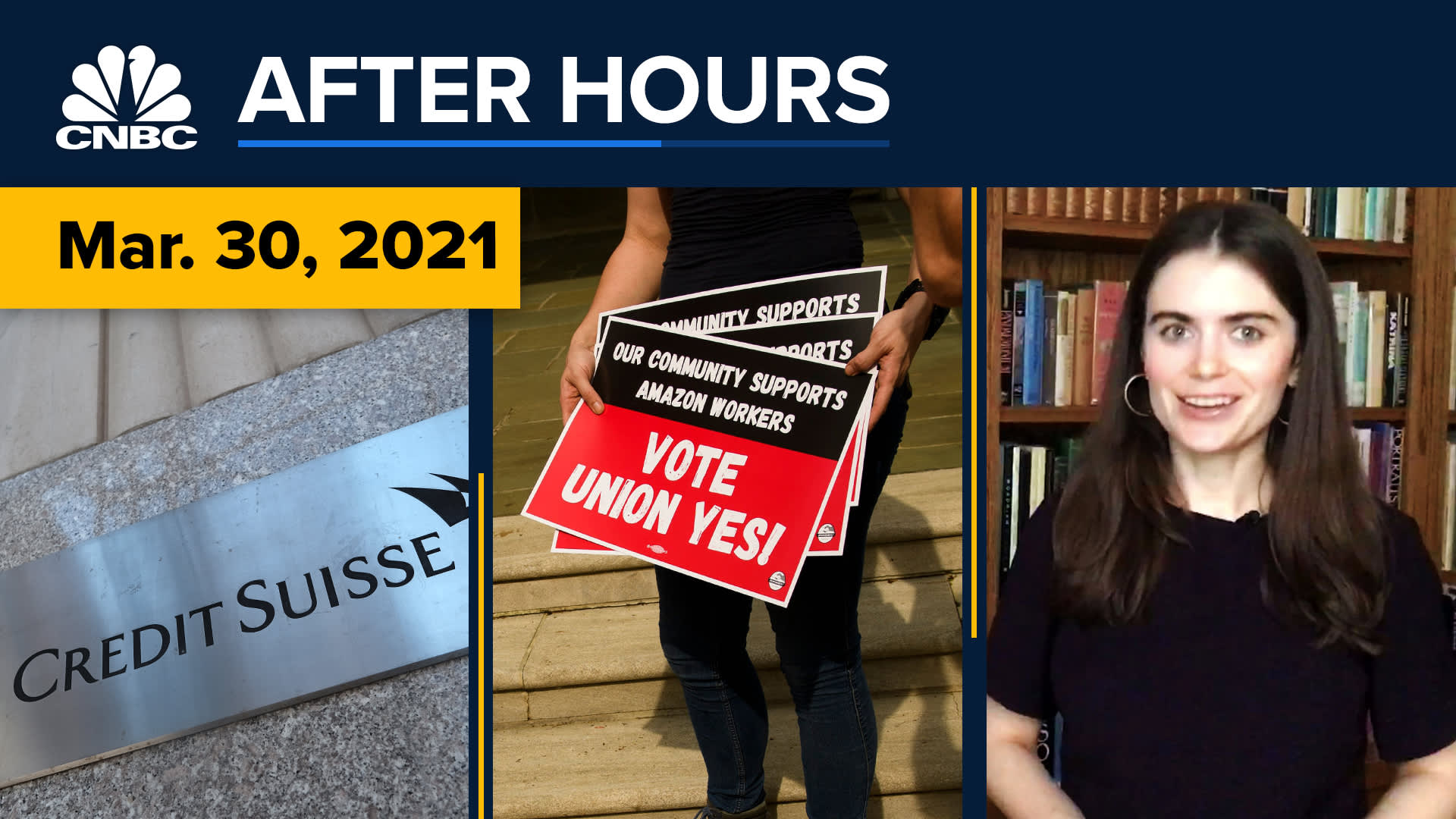
CNBC.com’s Pippa Stevens brings you the day’s top business news headlines. On today’s show, Deirdre Bosa lays out the stakes as Amazon’s union battle in Alabama enters its final stretch. Plus Leslie Picker explains the $20 billion blowup in the stock market that started with a massive margin call to one client with brokers at multiple investment banks.
Amazon union vote enters final stretch in watershed moment for U.S. labor
The votes on whether to form a union at Amazon’s sprawling Alabama fulfillment center are set to be reviewed starting on Tuesday, with momentum for future labor organizing at America’s second-largest private employer hanging in the balance.
An agent from the U.S. National Labor Relations Board will sift through ballots sent to more than 5,800 workers at Amazon’s Bessemer, Alabama-based warehouse as part of a prolonged process expected to last days and spark legal challenges.
Tallying votes might not begin until later this week or next, after both Amazon and the union check the eligibility of ballots cast, said a person familiar with the process. Subsequent procedures and objections could further forestall a certified result, the person said.
How Archegos’ $20 billion move to flee certain names led to banks’ share prices tumbling
The woes that arose from Archegos Capital Management at the end of last week bled into Monday as a slew of big banks saw their share prices decline.
Here’s how the $20 billion blowup unfolded.
U.S. media stocks ViacomCBS and Discovery experienced severe selling pressure on Friday, with each losing more than 27%.
A few Chinese internet ADRs including Baidu, Tencent and Vipshop also suffered sell-offs of a similar magnitude last week.
Tesla double-charged some customers for new cars, leaving them desperate for refund details
Last week, after paying for brand-new Tesla electric cars, Southern California residents Tom Slattery, Christopher T. Lee and Clark Peterson told CNBC they were gobsmacked to find the company had charged them twice, taking tens of thousands of dollars from their bank accounts without authorization or warning, then giving them a frustrating runaround when they sought refunds.
CNBC reviewed records including motor vehicle purchase agreements, correspondence with Tesla and bank statements to confirm their stories.
Two other customers, whose identities are known to CNBC but who asked to remain anonymous for privacy reasons, said they also experienced duplicate debit charges from Tesla, leaving them in distress. One of them faces overdraft fees and looming finance charges on credit card bills due at the end of the month.




